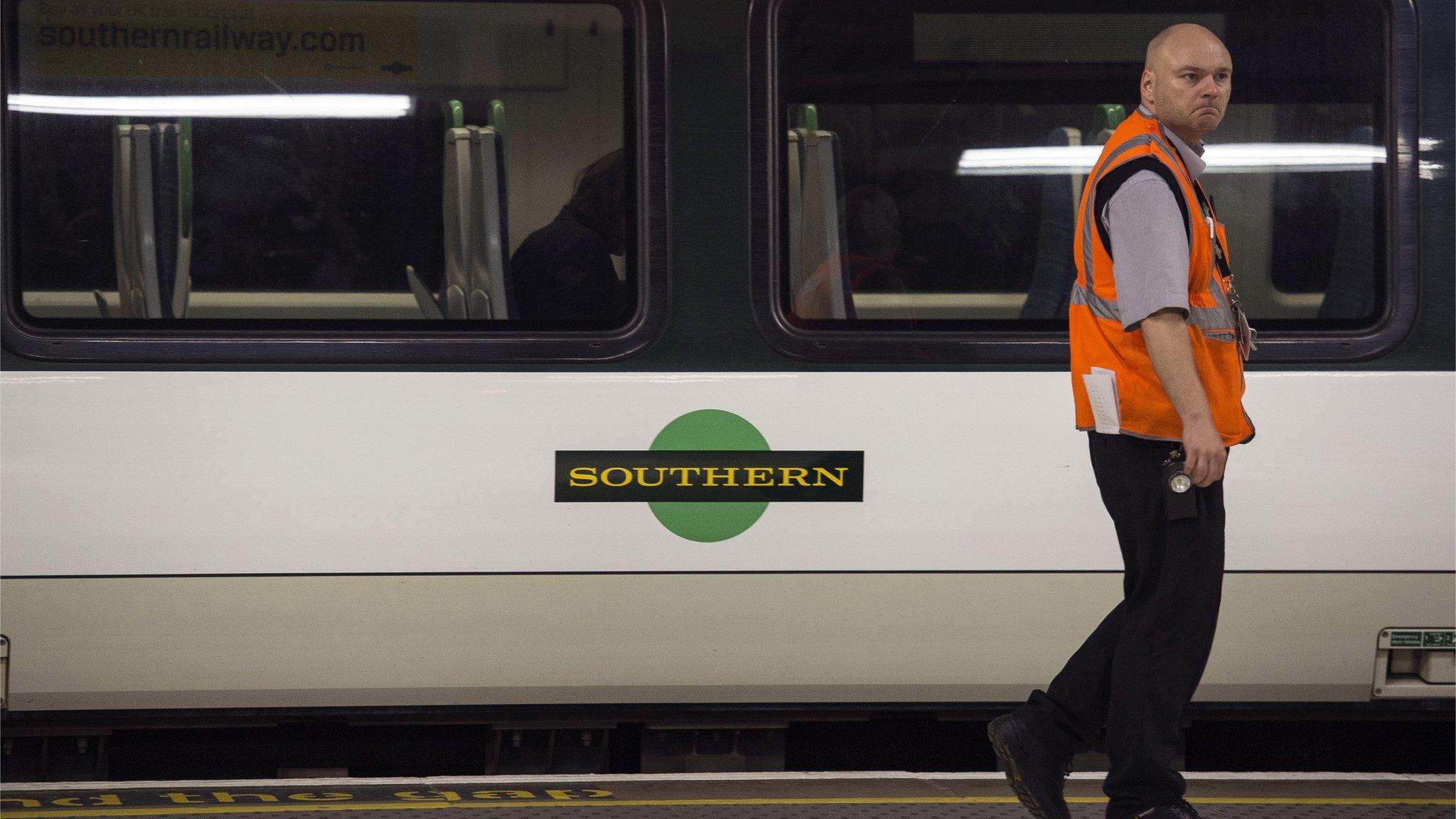Southern rail co-owner Go-Ahead reports £100m profits
- Published
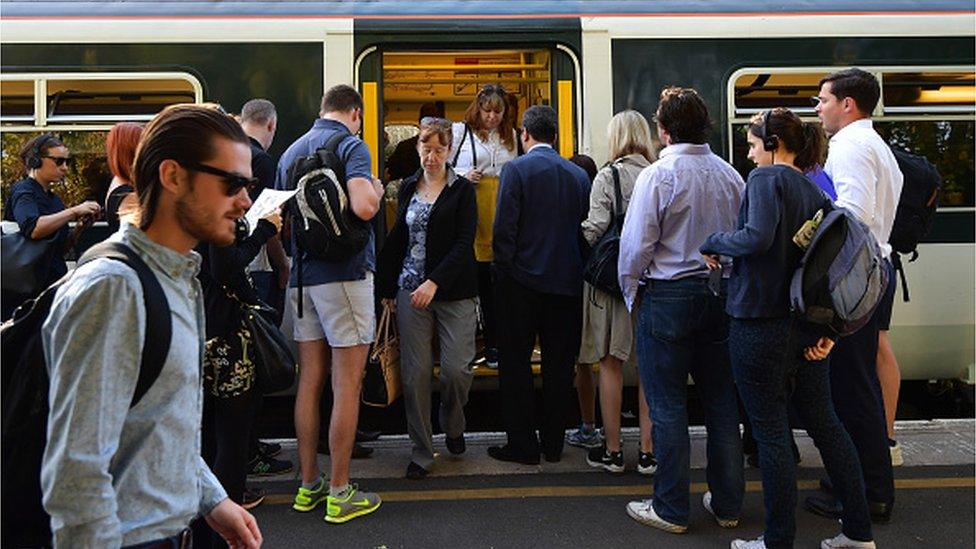
Southern rail co-owner Go-Ahead has reported a profit of nearly £100m and apologised for major ongoing disruptions to its railway services.
Earlier this year hundreds of rail services were axed as part of a revised Southern timetable, prompting travel chaos and complaints from passengers.
The profit figures angered unions, with RMT describing Go-Ahead and Southern as "a money-raking disaster".
Go-Ahead's yearly profits before tax rose 26.8% to £99.8m.
On Thursday the government unveiled a £20m fund in a bid to "get to grips" with problems on Southern's network.
Go-Ahead chief executive David Brown turned down a bonus and pay increase this year after disruptions and strikes on Southern and other railway services.
"Whilst we have largely achieved the financial and strategic targets set at the beginning of the year it is clear that we have not delivered the required levels of passenger service on our Southern routes," Go-Ahead chairman Andrew Allner said in a statement, external.
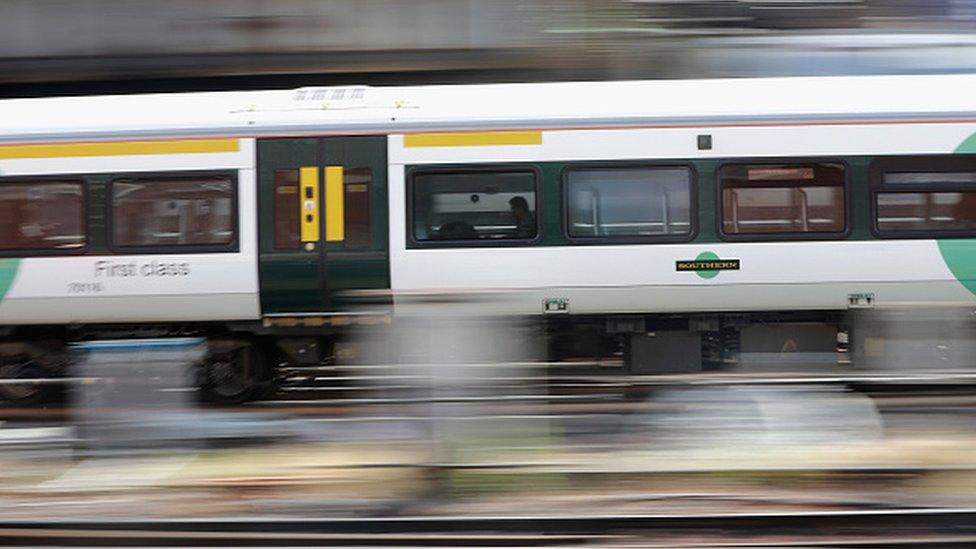
"As a result, David Brown, who in my view is an exceptional and committed group chief executive, made it clear he does not wish to be considered for an annual bonus this year and declined a salary increase."
Apology
In 2015, Mr Brown earned £2.16m.
Go-Ahead owns 65% of Govia, with French firm Keolis owning the remaining 35%. Southern is part of the Govia Thameslink Railway (GTR) franchise.
Train drivers union says Southern owners should 'prop up' loss making parts
Go-Ahead said Govia Thameslink Railway had "a difficult year", and that it was working with the Department of Transport and Network Rail "to improve services for customers".
"A large part of the role of the GTR franchise is to introduce three new train fleets and modernise working practices.
"During this period of change, Southern services have been disrupted by restricted network capacity, strike action and increased levels of absence. We apologise to the people whose lives have been affected during this time," Mr Brown said.
He said in a Reuters interview on Friday that GTR was "the problem franchise that we've had for a little while."
"It doesn't contribute to our profits. I can't apologise for doing what I set out to do in other parts of the business because that's where the profits have come from."
Go-Ahead shares rose more than 9% in morning trading on Friday.
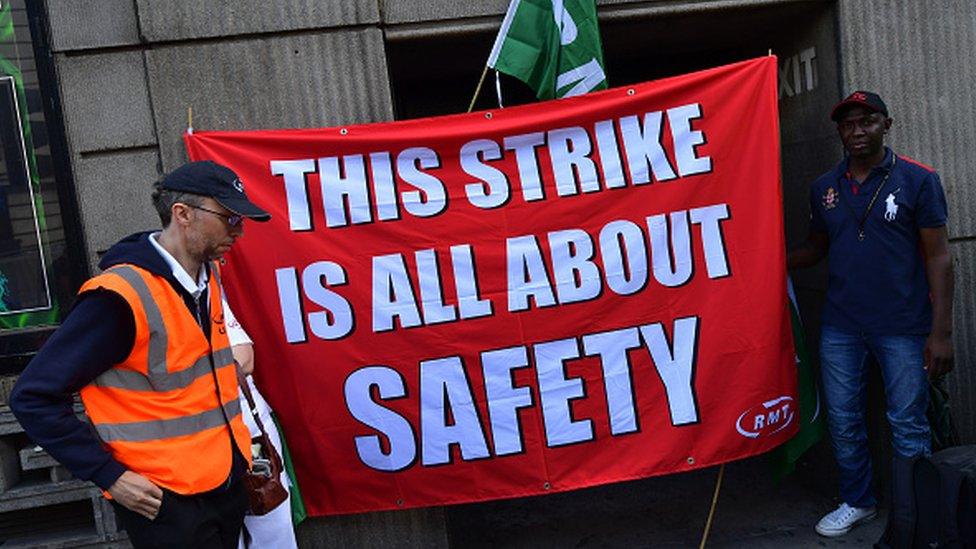
Southern Rail introduced a reduced service in July after months of delays and cancellations, which it blamed on "unprecedented" staff sickness.
In September it will reinstate more than a third of the 341 daily services it cut.
'Alice in Wonderland'
Southern has been subject to complaints from passengers and politicians about the travel chaos caused by a bitter dispute with unions over the role of guards, and staff shortages.
But Go-Ahead, which also runs London and regional bus networks, said it planned to move ahead with introducing a change in conductors' roles, saying it is a "step in the right direction", despite the move angering unions and triggering several strikes.
Rail, Maritime and Transport (RMT) union general secretary Mick Cash said of Go-Ahead's results:
"While Go-Ahead have been driving Britain's biggest rail franchise into total meltdown, the cash has been sloshing through the boardroom at obscene levels. This is reward for total failure on a scale which is off the map."
"Just a fraction of these profits would be enough to keep the guards on Southern trains, keep the passengers safe and resolve the industrial dispute between RMT and the company."
"They are a money-raking disaster that has turned Britain's railways into a global laughing stock and they should be slung out and replaced by the public sector option."
Mick Whelan, general secretary of train drivers' union Aslef, said: "This is like living with Alice in Wonderland.
"A company which has failed to deliver for passengers every day for the last year, and which only yesterday got its snout back in the public trough, with another generous pile of taxpayers' cash, courtesy of a compliant DfT, has just announced record profits for its shareholders."
- Published1 September 2016
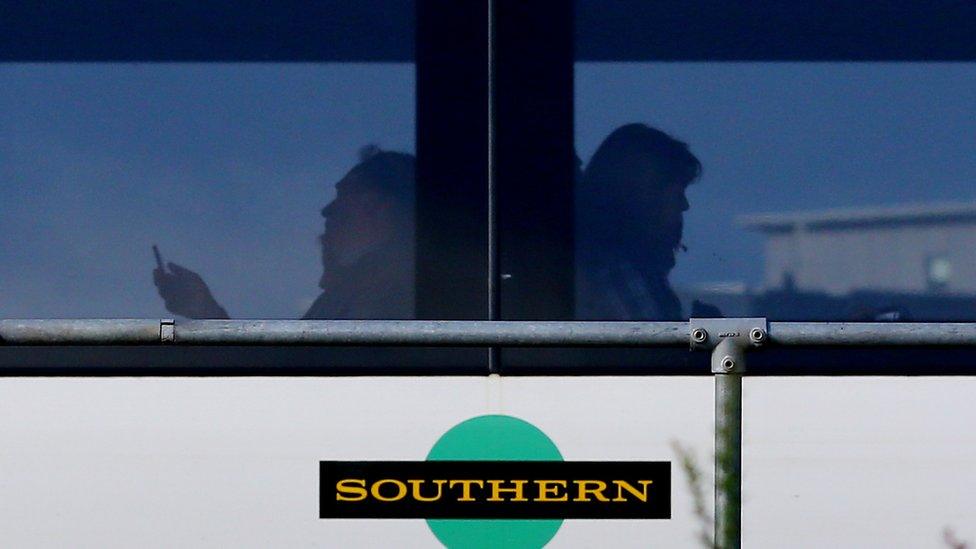
- Published31 August 2016
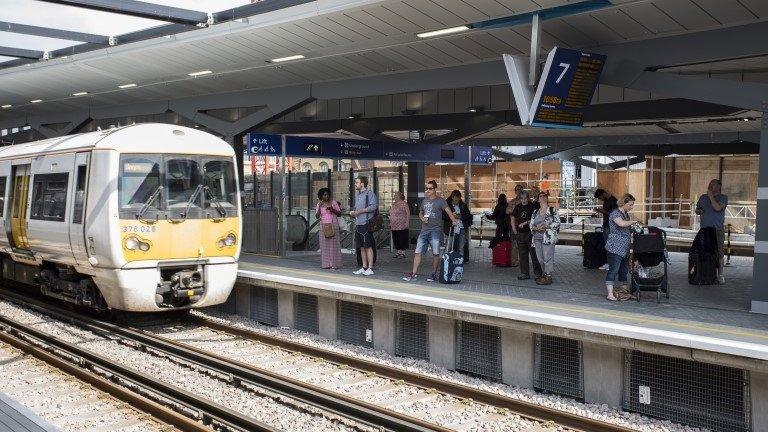
- Published30 August 2016
